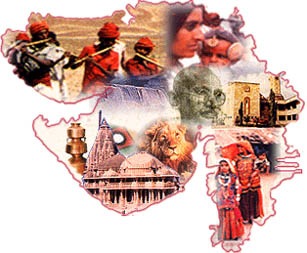
Any country will prosper only if its citizen actively participate in the nation building process. Now, what actually triggers citizen to actively involve oneself in this? Our most common answer would be love for the nation. Love, for sure gets people to do great things but like everything, love has its limits. Correspondingly, our acts or work inspired by that love also has limits.
Is there something else which extends this limit (of love)and inspires us to do something great for our nation and its people? In our opinion, the only other thing is P.R.I.D.E. Yes, pride definitely helps us expand our horizon by a large extent (definitely, even this has limits). If Swami Vivekananda was able to take the West by storm and enlighten them on Hindu dharma, it is not just out of love for our nation but also his pride in the achievements of our ancestors.
This pride is possible if each nation is taught of the gigantic achievements of its ancestors. Bharat has no shortage of such greatness but there is definitely a huge shortage in educating the people on our glorious accomplishments. How many of us know about Baudhayana, Kanada, Sushruta, etc? The core reason for not teaching these is that it will be "non-secular". However, it has been forgotten that unless this pride factor is felt in each Indian, our achievements and drive will be limited. On the other hand, when we realize that our ancestors scaled such peaks, we their sons and daughters can achieve the same, if not greater.
Bolivia's population of 8.5 millions is entirely Christian. In December 2005, Joan Eva Morales was elected as its President with 54% votes. The past European proselytizing colonisers reduced all faiths and cultures of Bolivia into archaeological ruins. Morales’ tribe Aymra’s are only 25 per cent of Bolivians. Obviously he got more votes from other tribes. Not this, but what happened after Morales won is more important. He wore the traditional dress of the priests of his ancestral faith and commenced a pilgrimage. Where?
To the sacred site where the archaeological remains of the Tawanku civilisation that flourished around 500 BC to about the 13th century. That is where his ancestral temple, ‘Kalasasaya’, stands in ruins. He was ‘showered’ with flowers, ‘blessed by the priests’ all the way.
Morales addressed thousands in front of the temple, thanked ‘Mother Earth’ and ‘God’ for his victory and promised to do away with the vestiges of the colonial past. By showing reverence to the ruins of the 13th century temple, Morales was recalling the hidden, suppressed spirit of Bolivia. His pilgrimage to Kalasasaya temple is national programme to rebuild the confidence of Bolivians in themselves and their economy.
Now coming to what is happening in Mongolia. Buddha dharma, the practice, suppressed for decades by the Communist Party, is being reclaimed by Mongolians as an integral part of their national identity. In 1578, Genghis Khan's descendent Altan Khan made Buddha dharma the official religion, installing the Tibetan Sonam Gyatso as Dalai Lama and conscripting males to monasteries instead of into the army.
In 1937, the Soviet-allied Mongolian Communist Party banned Buddhism and persecuted its 100,000-strong priestly class. The government executed nearly 20,000 lamas, and at least 10,000 educated monks. Another 10,000 were sent to Siberian labor camps. Most of the country's 2,000 monasteries were destroyed. But now, the Mongolians are reviving their past glory and culture by reviving Buddha dharma. They are doing what India has been shy to do.
See in contrast the way secular India handled the revered symbols of Indian spirit after freedom. The Indian Cabinet presided by Jawaharlal Nehru decided, as proposed by Sardar Patel, to rebuild at Government’s cost and as a symbol of recalling the spirit of India, the Somnath temple, that was repeatedly devastated by religious intolerance. This was something similar to what Eva Morales is doing now. But Mahatma Gandhi advised Sardar Patel that the people, not the government, should fund the construction.
Dr. Rajendra Prasad, the then President of India, was invited for the consecration. But Nehru objected to the President of ‘secular’ India attending a temple consecration. It turned Somnath temple, a symbol of India’s struggle against religious fanaticism, into an objectionable icon. But Rajendra Prasad defied Nehru and attended the consecration. Not just Somnath. Identical is the Ayodhya issue. The Hindus wanted a temple to be constructed on the spot where they believed Rama was born. Rama was always and is still the greatest symbol of Indian values.
Gandhiji died uttering ‘Hey Ram’. A structure, a mosque, unused from 1936 stood on the spot. Suddenly that unused structure became the symbol of secularism. Secular polity set upon Hindus. The courts and laws were moved against them. Eva Morales goes to the ruins of an ancient civilisation in a cent percent Christian nation. Here Somnath temple becomes an objectionable symbol and Ayodhya temple becomes a target of ‘secular’ India. The contrast is obvious. We do need an Eva Morales to detoxify ‘secular’ India, make them understand that geo-politics is becoming geo-civilisational politics.
Source: LA Times
Gurumurthy.net







